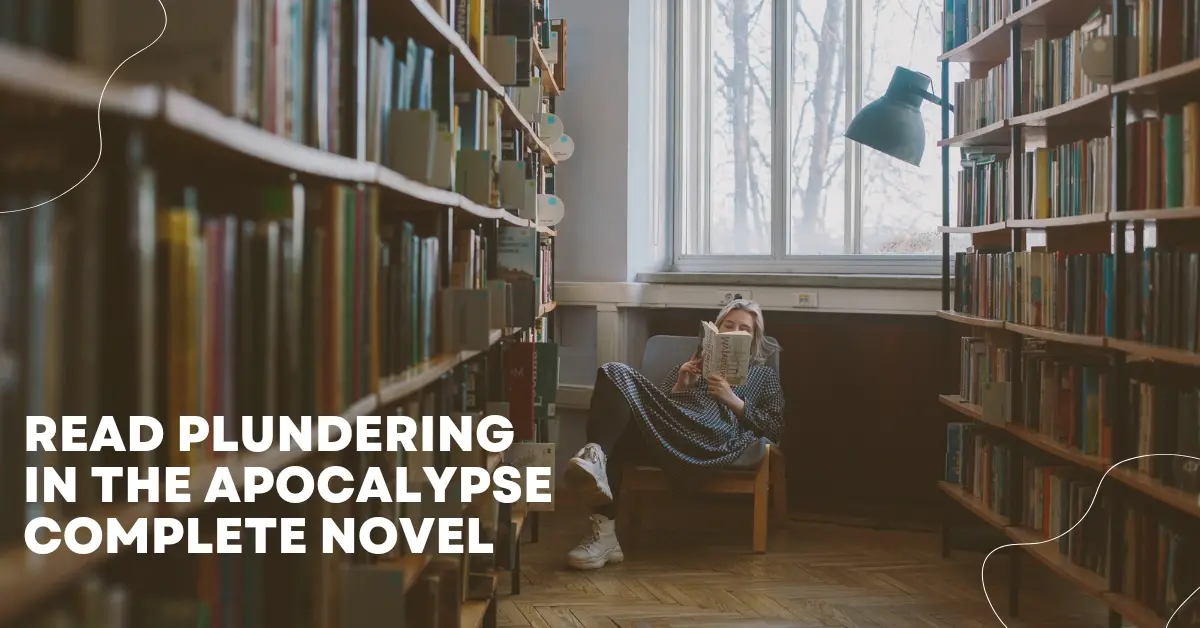plundering in the apocalypse
In the wake of an apocalyptic scenario, the lines between survival and morality blur, leaving people grappling with hard choices to ensure their existence in a global turned upside down. One such predicament that emerges amidst the chaos is the act of plundering – scavenging resources from deserted locations or looting from others that allows you to preserve oneself. But wherein do we draw the road between necessity and ethical transgression in a lawless landscape?
The apocalypse, whether or not depicted in fiction or feared as a potential truth, serves as a crucible for examining human nature under intense situations. When societal systems collapse, the fundamental instinct for survival regularly overrides traditional ethical standards. The vital to secure food, water, and shelter will become paramount, main a few to lodge to moves they might by no means have taken into consideration in everyday instances.
Plundering, on this context, becomes a means of survival for many. Abandoned shops, warehouses, and homes are ripe with provisions that might imply the difference among existence and demise. In a international wherein the rule of law has disintegrated, individuals must fend for themselves, frequently on the fee of others. The moral quandary arises when the line between necessity and greed will become blurred.
On one hand, the act of plundering may be visible as a practical reaction to an existential danger. In a combat for survival, individuals are compelled to take something measures vital to make certain their persisted lifestyles. The harsh truth of the apocalypse leaves little room for moral deliberation while faced with the chance of starvation or publicity.
However, this utilitarian perspective neglects the moral implications of plundering. In a society ruled through concepts of equity and justice, the act of taking what belongs to others without their consent is inherently unethical. The breakdown of social norms does now not absolve individuals of their moral responsibility to admire the rights and belongings of others, even in dire situations.
Moreover, the effects of plundering extend past the immediate acquisition of assets. The erosion of trust and community brotherly love exacerbates the already precarious state of submit-apocalyptic society. When individuals prioritize their very own survival at the price of others, the material of society unravels, leaving at the back of a fragmented and distrustful community.
So, what is the solution to this moral catch 22 situation? Striking a stability among survival and morality isn’t any clean feat in a global ravaged by using disaster. However, fostering a feel of empathy and cooperation amidst the chaos can mitigate the want for plundering. Building alliances and sharing assets can alleviate the burden on people and decrease the temptation to lodge to unethical means.
Furthermore, organising a device of equitable distribution and mutual aid can assist address the underlying reasons of plundering. By addressing the root causes of scarcity and inequality, communities can create a greater resilient and sustainable framework for survival within the face of adversity.
In the turbulent aftermath of an apocalypse, in which the remnants of civilization are scattered amidst the ruins, the ethical complexities of plundering persist as a pressing situation. While the immediate vital for survival looms big, the ethical implications of one’s movements reverberate through the delicate fabric of submit-apocalyptic society.
Plundering, by means of its very nature, entails taking from others with out their consent. It is an act born out of desperation, driven by using the primal intuition to stable one’s personal survival at any price. Yet, as survivors scavenge via the remnants of a international once acquainted, they may be faced not most effective with the bodily remnants of a misplaced civilization however also with the ethical remnants of the ethical frameworks that once ruled it.
In the absence of regulation and order, the bounds of morality turn out to be fluid, concern to interpretation and edition. What became once considered robbery may additionally now be considered as a essential manner of acquiring important assets. However, this moral relativism is not with out its results. The erosion of moral norms undermines the very basis of social brotherly love, leaving survivors prone to exploitation and betrayal.
Moreover, the act of plundering extends past mere fabric gain. It displays a essential shift in human relationships, from cooperation and mutual useful resource to competition and self-interest. In a international in which believe is a scarce commodity, people are pressured to view their fellow survivors not as allies however as potential threats to their very own survival. This breakdown in social bonds in addition perpetuates a cycle of mistrust and battle, making it increasingly tough to forge meaningful connections in a fractured society.
Yet, amidst the chaos and despair, there stays a glimmer of want. In the face of adversity, humanity has verified an innate ability for resilience and altruism. Acts of kindness and harmony, however small, function beacons of mild within the darkness, reminding us of our shared humanity amidst the rubble of civilization.
To cope with the moral challenges of plundering within the apocalypse, we ought to look past mere survival and embody a broader imaginative and prescient of collective flourishing. By fostering a enjoy of network and cooperation, we are able to assemble resilience in the face of adversity and forge a direction towards a greater surely and equitable society.
Moral of plundering in the apocalypse
Ultimately, the moral catch 22 situation of plundering within the apocalypse forces us to confront the essence of our humanity – our functionality for every selfishness and selflessness, for greed and generosity. In navigating those turbulent waters, we should try to uphold the values that outline us as moral beings, even in the most trying of instances. For it is in our dedication to compassion and empathy that we discover choice amidst the ruins, and the promise of a brighter day after today beyond the apocalypse.

